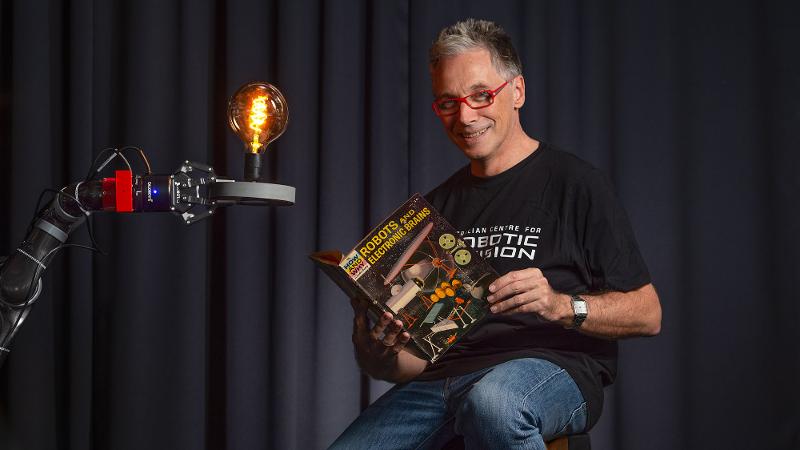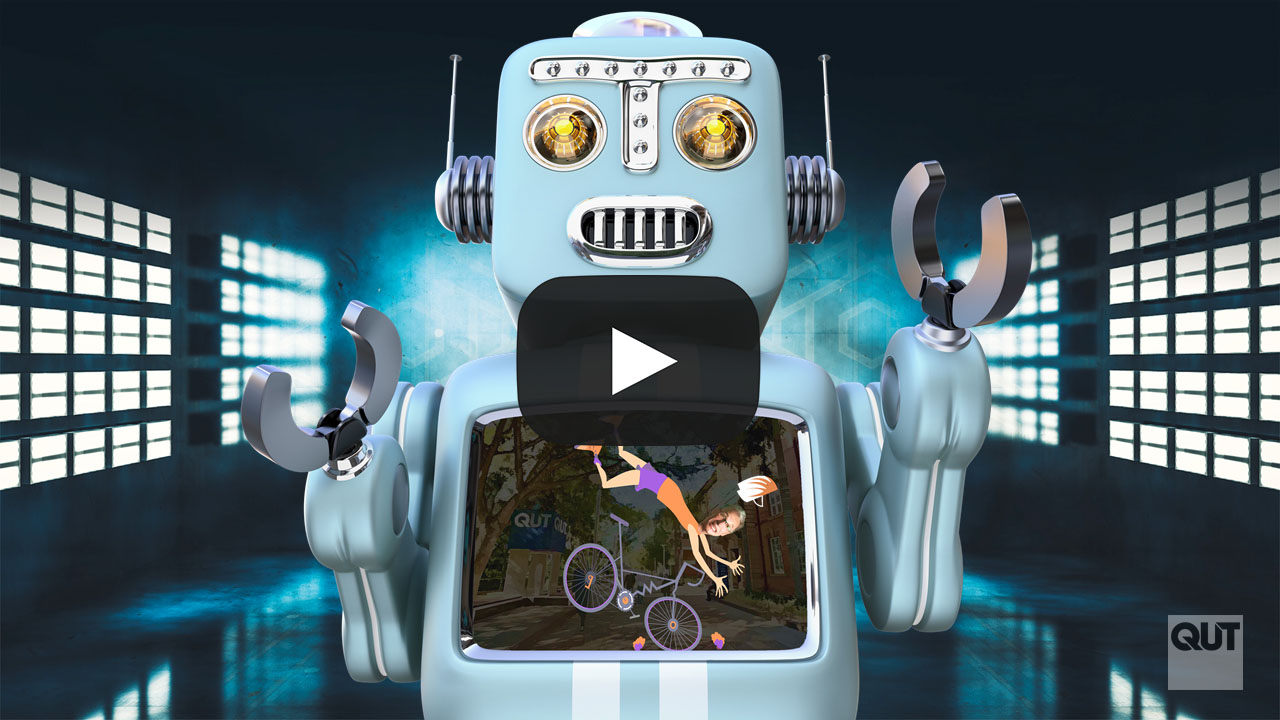
The QUT Robot Academy, which began as an ambitious idea to take teaching robotics freely to the world, has now attracted more than 125,000 people from 175 countries who have studied more than 750,000 lessons.
Key points
- The QUT Robot Academy has delivered 750,000 lessons to 120,000 people in 175 countries.
- The Academy, which marks its second birthday this month, delivers high-quality free undergraduate-level lessons.
- The students have a wider demographic than with traditionally taught courses, with 10 per cent being over 55 and nearly half being female.
QUT Distinguished Professor Peter Corke, who collaborated with the University to develop the Robot Academy, said he was enormously proud of what had been achieved since the academy’s launch two years ago this month.
The idea for the open and online Robot Academy was the silver lining to emerge out of a personal mishap, when Professor Corke had a bicycle accident in 2012 that forced him to explore ways he could teach his students through video without being able to leave his home.
Robot Academy has recorded phenomenal growth in students who have been attracted to the high-quality free undergraduate-level lessons, serving nearly three times as many students in its second year of operation as it did in its first year.
The Academy’s courses have attracted students with a wider demographic span than many traditionally-taught STEM courses, with more than 10 per cent of students being over 55.
The Academy’s students are spread around the world, with the top five countries with the highest number of students being China, United States, India, Germany and Mexico.
Professor Corke, who is the director of the Australian Centre for Robotic Vision, said the Robot Academy was helping people upskill themselves and discover the potential of robotics.
“We are teaching a lot of students about robotics and vision, anywhere anytime,” Professor Corke said.
“I’m proud that the Robot Academy provides a very supportive and inclusive environment.
“Although targeted at undergraduate level, about 20 per cent of the lessons require no more than general knowledge, and close to half of the students (46 per cent) are female, which is much higher than an average university engineering classroom.
“The QUT Robot Academy provides more than 200 free short lessons on specific robotics topics, including robot arms and computer vision. This year we plan to add lessons on mobile robots which are the technology behind self-driving cars.
“The feedback from participants has been great and we are looking at how we incorporate more formalised testing and provide some sort of qualification upon completion.”
Queensland Premier Annastacia Palaszczuk last year released the QUT-commissioned report The Robotics and Automation Advantage for Queensland which identified Queensland as being in the box seat to use robotics and automation to transform productivity and quality of life.
Queensland already has the country’s largest pool of robotics researchers with the headquarters of the Australian Centre for Robotic Vision at QUT and that gathering of expertise is set to expand with CSIRO recently announcing Brisbane as the home of its Robotics Innovation Centre.
The QUT Robot Academy, based in Brisbane, is another part of that growing robotic technology cluster.

Professor Corke, who in 2017 was awarded Australian University Teacher of the Year, traces the idea for the Robot Academy to an incident in 2012 when he fell off his bicycle in and broke his patella.
“I was laid up at home but there was nobody to cover my teaching, so I narrated and recorded my lectures at home, and had a colleague play them to the class,” he said.
“I uploaded rough and ready lectures to YouTube where they gained a life of their own.
“It soon became clear that I could teach 80 students in a classroom or 100,000 online.
“This led to a kind of teaching megalomania. I got to thinking that if there’s a whole generation of people who need to learn about robotics, I should teach them!”
Professor Corke developed the world’s first massive open online courses (MOOCS) on robotics in 2015, which then lead to the launch of the QUT Robot Academy in 2017.
The Robot Academy courses contain information from Professor Corke’s undergraduate lectures repackaged into videos of between five and eight minutes long.
The QUT Robot Academy can be accessed at https://robotacademy.net.au/.
Media contact:
Rod Chester, QUT Media, 07 3138 9449, rod.chester@qut.edu.au
After hours: Rose Trapnell, 0407 585 901, media@qut.edu.au



